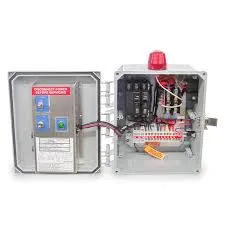The Importance of Tape Electrical Insulation in Modern Applications
In an era where electrical devices dominate our daily lives, the necessity for effective electrical insulation is paramount. Among the various methods employed to ensure safety and functionality in electrical systems, tape electrical insulation stands out as a practical and versatile solution. This article explores the significance of tape electrical insulation, its types, applications, and advantages.
Electrical insulation is essential for preventing short circuits, protecting components, and ensuring the safety of both equipment and users. Tape electrical insulation is widely used across industries, providing a straightforward and efficient means of insulating electrical wires, connections, and components. Its effectiveness lies in its ability to create a barrier against moisture, dust, and other environmental factors that could potentially lead to electrical failures.
There are several types of electrical insulation tape, each designed to meet specific requirements based on the application. The most common type is PVC (Polyvinyl Chloride) tape, well-regarded for its excellent insulation properties and flexibility. It is often used in residential and commercial electrical wiring. Another popular option is rubber insulating tape, which provides superior electrical insulation and is ideal for high-voltage environments. For those requiring enhanced flame resistance, fiberglass tape serves as an excellent choice, providing a strong barrier against heat and fire hazards.
One of the key advantages of tape electrical insulation is its ease of use. It can be applied quickly and effectively, allowing for rapid repairs and modifications in various settings. Whether in homes, offices, or industrial facilities, electrical insulation tape can be easily cut to length and wrapped around wires and connections, ensuring a snug fit. This quick application process minimizes downtime in both maintenance and production processes, making it an invaluable resource.
tape electrical insulation

Moreover, tape electrical insulation is not limited to just wires and connectors. It can also be utilized in a range of applications, including the insulation of transformers, capacitors, and motors. In automotive and aerospace industries, high-temperature and high-voltage insulations are critical, and specialized tape types are specifically designed to withstand extreme conditions. This versatility makes tape electrical insulation invaluable across numerous sectors.
Another significant aspect of tape electrical insulation is its contribution to safety. By insulating electrical components, it reduces the risk of electrical shocks and short circuits, safeguarding both the equipment and individuals working with or around these systems. Properly insulated connections also extend the life of electrical devices by preventing wear and tear caused by environmental factors.
Furthermore, advancements in technology have led to the development of new, improved materials and types of tape that enhance performance. For example, some electrical tapes are now manufactured with self-fusing properties, allowing them to bond to themselves when wrapped, creating a robust and hermetic seal. This innovation offers even greater protection against moisture and air, further bolstering the integrity of electrical systems.
In conclusion, tape electrical insulation serves as a crucial element in the world of electrical engineering. Its versatility, ease of use, and safety benefits make it an indispensable tool across various industries. As technology continues to evolve, it is likely that new types of electrical insulation tape will emerge, further enhancing their safety and effectiveness. Investing in high-quality electrical insulation tape not only protects equipment but also ensures the safety of users, making it a fundamental component of modern electrical applications.
-
XIANGFAN Rubber Tape-Ultimate Solutions for All Your Insulation NeedsNewsJun.24,2025
-
XIANGFAN Rubber Tape-Protection for Industrial and Residential ApplicationsNewsJun.24,2025
-
XIANGFAN Rubber Tape: Superior Safety and Sealing for Demanding EnvironmentsNewsJun.24,2025
-
XIANGFAN Rubber Tape: Reliable Solutions for Every Electrical ChallengeNewsJun.24,2025
-
XIANGFAN Electrical & Industrial Tape: Powering Reliability Across IndustriesNewsJun.24,2025
-
XIANGFAN Electrical & Industrial Tape: Excellence in Every ApplicationNewsJun.24,2025
